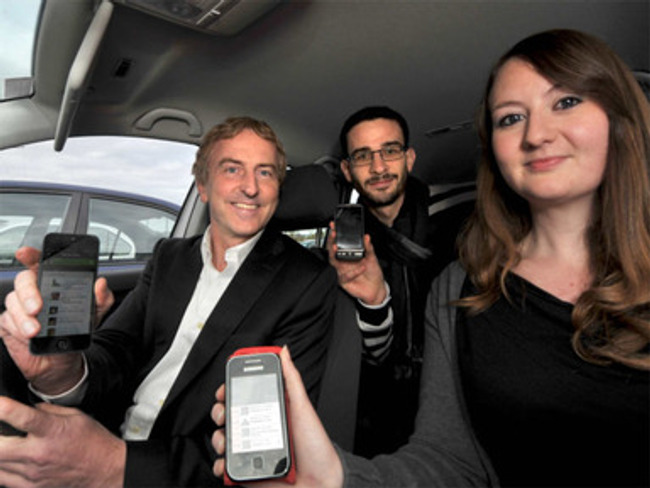Cloud technology developed in Cork by Avego is understood to be coming to the rescue of tens of thousands of commuters in San Francisco, California, who have been affected by strike action taken by BART rail workers.
The company’s carpooling or real-time ride-sharing app has seen an 8,825pc increase in new users since the strike began at the weekend.
The BART strike has paralysed commuter traffic by contributing to the largest traffic jams in the Bay area since the last BART strike in 1997.
Avego responded to the situation by setting up a website to guide commuters to its real-time ride-sharing app. The company also orchestrated a daily lottery, whereby four lucky commuters would be airlifted home by helicopter.
Avego, which employs more than 55 people in Kinsale, Co Cork, was set up by successful tech entrepreneur Sean O’Sullivan, who was recognised by MIT for co-coining the term ‘cloud computing’.
O’Sullivan is also managing director of SOSventures International, which boasted returns averaging 27pc over the past 15 years. His first company, MapInfo, grew to a US$200m public company, and popularised street mapping on computers. Among his successful investments to date are Netflix, which just announced 1m users in Ireland and the UK in just several months, and Harmonix, creator of Guitar Hero.
Empty seats in cars become part of the public transport infrastructure

Sean O’Sullivan (left) with Janette Looney and Antonio Carrasco
Avego’s app effectively connects commuters and drivers who are willing to carpool and provides a mechanism whereby the driver gets reimbursed for each mile.
The cloud app is currently the most widely accepted app in California for commuters to instantly arrange to carpool together.
The service, which is supported by the US Federal Government and Department of Transport, pays 20 cents a mile. Avego makes 3 cents from the transaction and the driver gets 17 cents.
The service is tax-free because it is constructed in such a way that the driver will never make a profit but will get the benefit of getting to work faster and having a guaranteed parking space as a carpool provider. Plus it’s a pretty social way to travel.
Rob Power, marketing communications lead at Avego, explained that the app is effectively cloud and social media coming together. “The State of California is under huge pressure to reduce emissions because the State is so densely populated in some parts.
“By connecting people near you with a real-time ride-sharing service, drivers get to use the high occupancy vehicle (HOV) lanes for vehicles carrying two or more passengers so they can get to work faster.
“Real-time ride-sharing is defined by the US government as the giving up of seats to share a journey on a cost-reimbursement basis only. That is important because people pay and use the service at or under the IRS reimbursement rate so the money drivers make is not considered a charge.”
Power, who lived in the Bay Area himself and is only too familiar with the commute, said the system is a win-win for drivers and passengers.
“If you want to drive to work and you are a single-occupancy driver with three empty seats you are going to get stuck in gridlocked traffic and you’ll have to pay all your petrol costs. But if you use Avego’s technology, you get access to the HOV lanes and can cruise past the gridlock, get to work quicker and get reimbursed.”
Avego’s role in helping beleaguered tourists has generated enormous publicity for the company in the US, including reports on Bloomberg and CNN.
New users to the system receive US$5 credit and they can top up their balance on the Avego app. “No cash changes hands and there is a ratings system so passengers can rate drivers. We urge new users to recommend the app to their friends and they can create groups and message those groups if they are planning a trip,” Power said.
“We consider ourselves to be an agile start-up and the development of the app has been an iterative process with the app coming on in leaps and bounds and we’re adding new features all the time.
“We consider empty seats in cars to be part of the public transport network and in recent days you’re talking tens of thousands of people realising this in the Bay Area in recent days,” Power added.
Disclosure: SOSventures is an investor in Siliconrepublic.com
Gridlock image via Shutterstock